Results
-
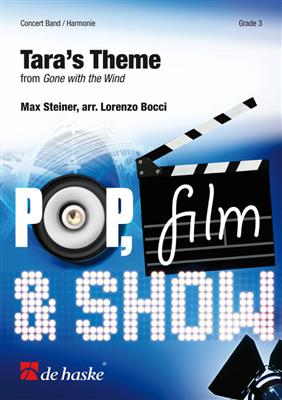 £76.99
£76.99Tara's Theme
Max Steiner was born in Vienna in 1888, and grew up surrounded by music. He was a student of the Imperial Academy of Music, having among his teachers Gustav Mahler. In 1936 he signed an agreement with Warner. Steiner, considered the father of symphonic music in Hollywood style. One of his most famous and popular masterworks is, without any doubt, Gone with the Wind (1939). The movie was an immediate success and won ten Academy Awards. In spite of the years passed, this movie still moves young audiences around the world. Lorenzo Bocci has chosen the song Tara's Theme from this movie and turned the romantic music into an arrangement for concert band.
Estimated dispatch 7-14 working days
-
 £84.99
£84.99Song of David
This work is based on the 13th Century Dies Irae (Day of Wrath) attributed to Thomas von Celano. Many famous composers have already employed this originally Gregorian chant in their works, including Berlioz, Saint-Sans, Mahler and Lizst. In Jan de Haan's Song of David - the title of which is taken from the third line of the Dies Irae text - the theme is presented in unison initially and then reappears in various guises.
Estimated dispatch 7-14 working days
-
 £70.80
£70.80Choral from Symphony N. 2 - Gustav Mahler
Estimated dispatch 7-14 working days
-
 £68.00
£68.00Symphony No. 3 - Finale - Gustav Mahler
Estimated dispatch 7-14 working days
-
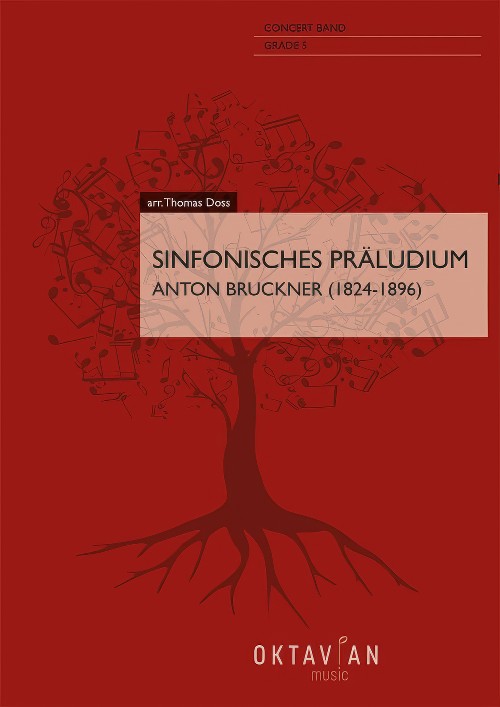 £119.20
£119.20Sinfonisches Praludium (Concert Band - Score and Parts) - Bruckner, Anton - Doss, Thomas
The Symphonic Prelude in C minor is an orchestral composition from the circle of the Austrian composer Anton Bruckner. The unearthing of this work, discovered shortly after World War II, has created confusion, leading to a second, reduced version being attributed to Gustav Mahler, a theory which still holds sway in musical circles today, although there is a high probability that the original composition is indeed by Bruckner himself. Rudolf Krzyzanowski (1895-1911), a pupil of Bruckner, transcribed the score in 1876. The 43-page manuscript bears the inscription Rudolf Krzyzanowski cop. 1876 on the first page; while on the last page is written in blue pencil: By Anton Bruckner. Thomas Doss used a facsimile of this autograph copy as the basic of his instrumentation of the prelude for symphonic wind orchestra.Duration: 6.15
Estimated dispatch 7-14 working days
-
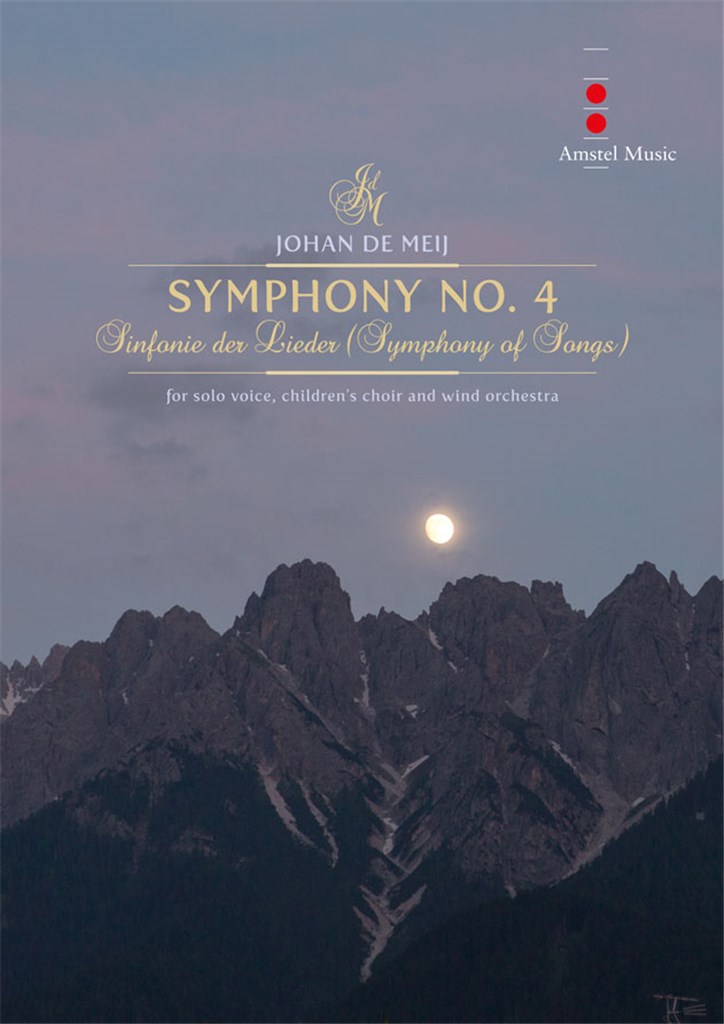 £1.95
£1.95Symphony No.4: Symphony of Songs (SATB Choral Octavo) - De Meij, Johan
Johan de Meij's 4th Symphony for solo voice, children's choir and wind orchestra is inspired by a variety of 19th century German poems.The first three movements use lyrics from the same source as Gustav Mahler did earlier: Kindertotenlieder by Friedrich Ruckert.:Ein Jahr ist nun geschwundenWenn zur Thur hereinWiedersehnThe second half of the symphony continues on the death theme, using a poem by Heinrich Heine (Two Brothers). The last two songs, Early Spring and Song of the Harlequin by Hugo von Hofmannsthal are a metaphor for rebirth, new life and hopeZwei Bruder (Heinrich Heine)Vorfruhling (Hugo von Hofmannsthal)Liedchen des Harlekin (Hugo von Hofmannsthal)Duration: 30:00
Estimated dispatch 7-14 working days
-
 £340.00
£340.00Symphony No.4: Symphony of Songs (Solo Voice, Children's Choir and Concert Band - Score and Parts) - De Meij, Johan
Johan de Meij's 4th Symphony for solo voice, children's choir and wind orchestra is inspired by a variety of 19th century German poems.The first three movements use lyrics from the same source as Gustav Mahler did earlier: Kindertotenlieder by Friedrich Ruckert.:Ein Jahr ist nun geschwundenWenn zur Thur hereinWiedersehnThe second half of the symphony continues on the death theme, using a poem by Heinrich Heine (Two Brothers). The last two songs, Early Spring and Song of the Harlequin by Hugo von Hofmannsthal are a metaphor for rebirth, new life and hopeZwei Bruder (Heinrich Heine)Vorfruhling (Hugo von Hofmannsthal)Liedchen des Harlekin (Hugo von Hofmannsthal)Duration: 30:00
Estimated dispatch 7-14 working days
-
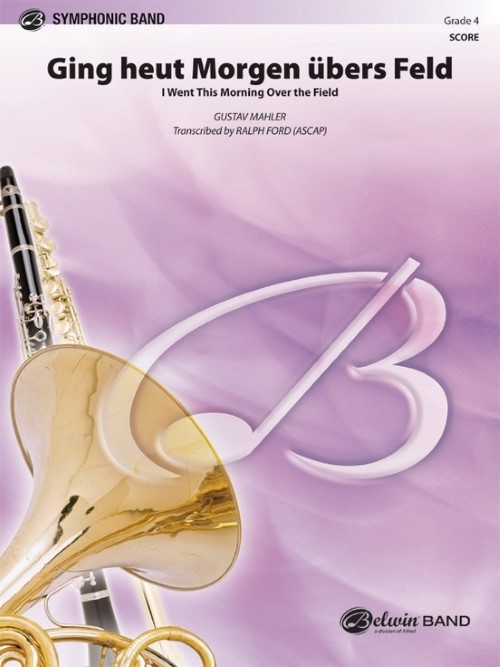 £66.95
£66.95Ging heut Morgen ubers Feld (I Went This Morning Over the Field) (Concert Band - Score and Parts) - Mahler, Gustav - Ford, Ralph
The second movement of Mahler's "Songs of the Wayfarer" was originally scored for voice and piano. The second and most-musical movement, has been set for symphonic band without a vocal soloist, however, the part is included and may also be performed with the soloist. A cherished addition to the literature transcribed for the first time! Duration: 4.30
Estimated dispatch 7-14 working days
-
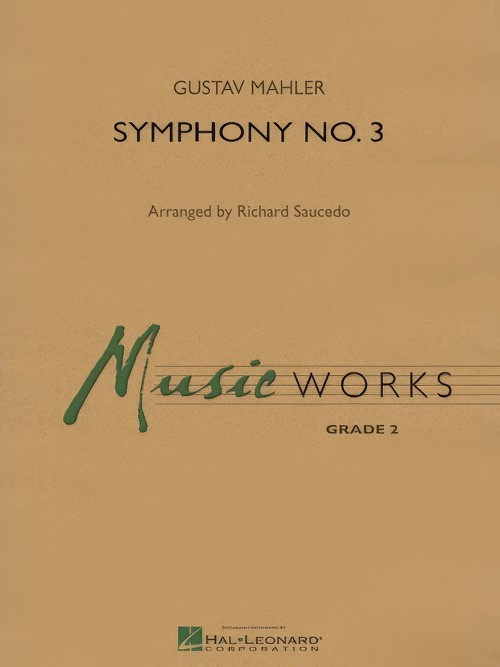 £53.50
£53.50Symphony No.3, Finale to (Concert Band - Score and Parts) - Mahler, Gustav - Saucedo, Richard L.
Introduce your young players to this important composer with Richard Saucedo's richly scored adaptation of the moving Finale from Mahler's Symphony No.3. Perfect for reinforcing the musical concepts of ensemble blend, phrasing and chorale-style playing.
Estimated dispatch 7-14 working days
-
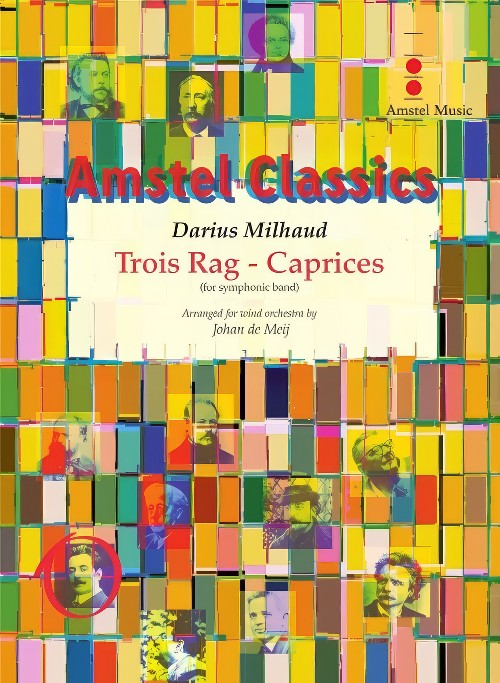 £148.00
£148.00Trois Rag - Caprices (Concert Band - Score and Parts) - Milhaud, Darius - De Meij, Johan
The French composer Darius Milhaud (1892-1974) was a member of the Groupe des Six. This group of six composers gathering Honegger, Poulence, Auric, Durey, Tailleferre and Milhaud, imitated Erik Satie by revolting against the deeply rooted traditional conventions of that time. They reacted against impressionism (Debussy) and romanticism (Wagner, Mahler) and felt very strongly about the music of Satie and Stravinsky. Milhaud's most popular work is undoubtedly the ballet La Creation du Monde, one of the most striking examples of jazz influences in classical music. The premiere at the Theatre des Champs Elysees in October 1923 caused a real scandal with the Paris public. The Trois Rag-Caprices for piano were composed one year earlier, in the summer of 1922, and could be considered as a kind of preliminary sketch for La Creation du Monde. There are indeed clear similarities between both compositions as to the rhythmical and harmonic aspects. The Trois Rag-Caprices were orchestrated for symphony orchestra by Milhaud himself some time later. The same happened to Saudades do Brasil (1920), a piano composition punctuated with Latin-American influences, which was written after his stay in Rio de Janeiro (1917-18) exactly as his ballet Le Boeuf sur le Toit. Johan de Meij's orchestration of Trois Rag-Caprices for symphonic band is a most welcome addition next to the original band works of Milhaud, such as Suite Francaise (1945) and West Point Suite (1951).Duration: 8.00
Estimated dispatch 7-14 working days
